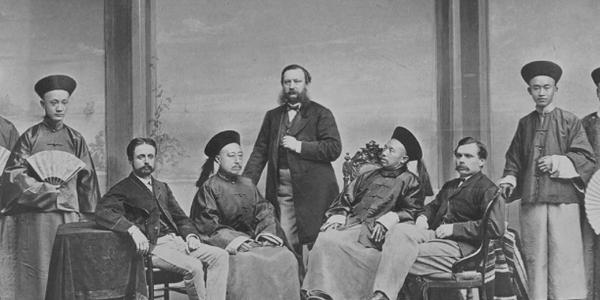From Imperial Envoys to Legation Ministers: Diplomatic Communications in the Late Qing
In the Qing, the diary-form for intelligence gathering was perfected by the Manchu official Tulisen, whose travelogue to Central Asia allowed the Kangxi emperor’s “imperial eyes” to assume vicarious witness to that heroic journey. Prior to China’s stationing of resident ministers abroad in 1876, envoy journals similar to Tulisen’s were commonly used for information gathering. In the next three decades, the genre of envoy communication became a fertile field for trials and experimentations, as Qing diplomats adapted their methods of communication to the changing needs of the state and new media and information technology. When the Qing dynasty established China’s first bureau of foreign affairs (waiwubu) in 1901, the modern-style “foreign office” required radically new genres for diplomatic communication, which prioritized systemization, standardization, and the elimination of subjective experience. In this presentation, Professor Day traces the evolution in diplomatic communications from the late Qing to the early Republic and unpacks how new views of the foreign were shaped by new genres, new media, and new bureaucratic structures.
Registration is required to attend lecture. Once registered you will receive the Zoom link.
Supported by a gift from Leung Tung Peter & Lin Young.
Organized by East Asian Languages and Cultures.

